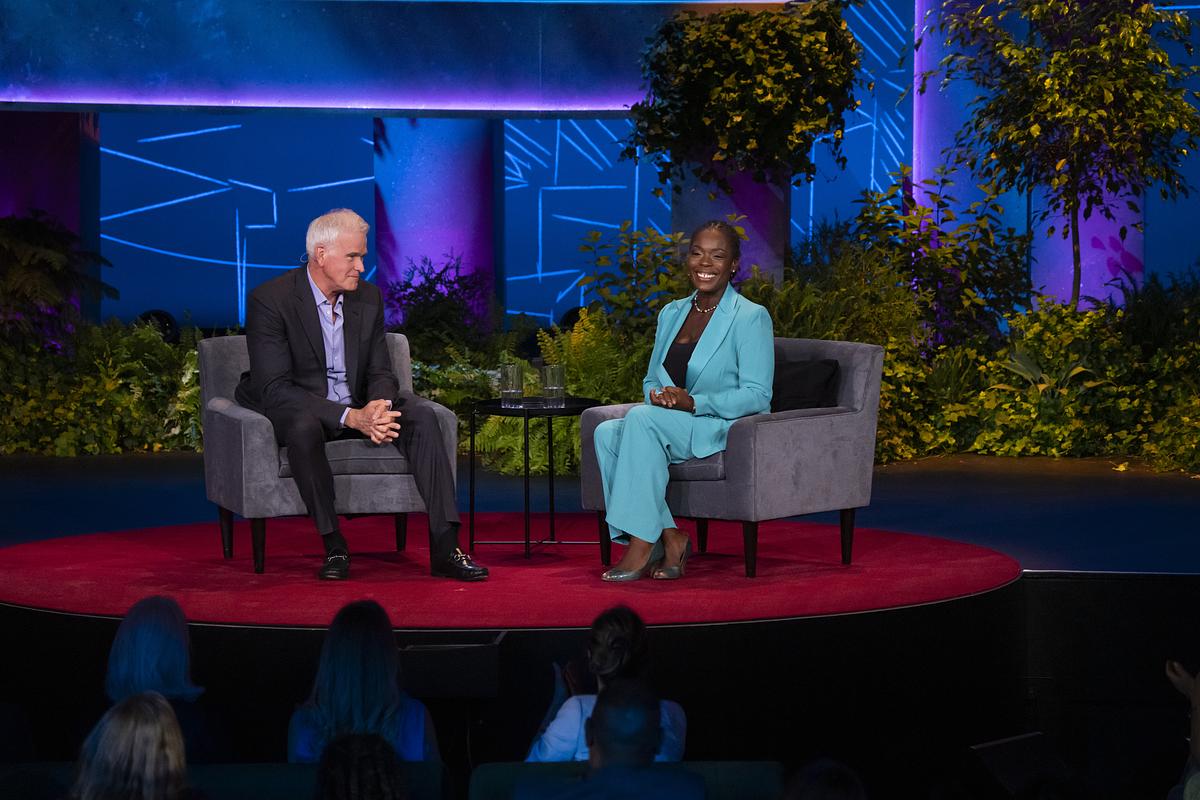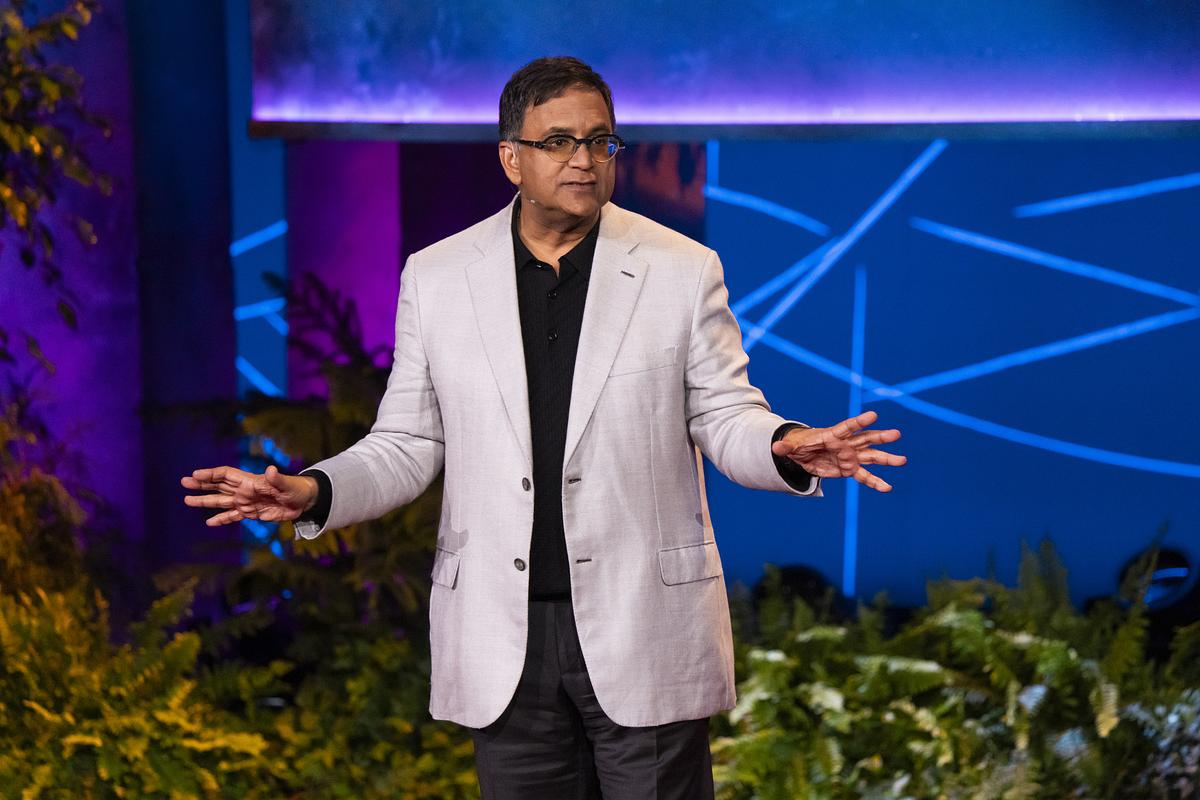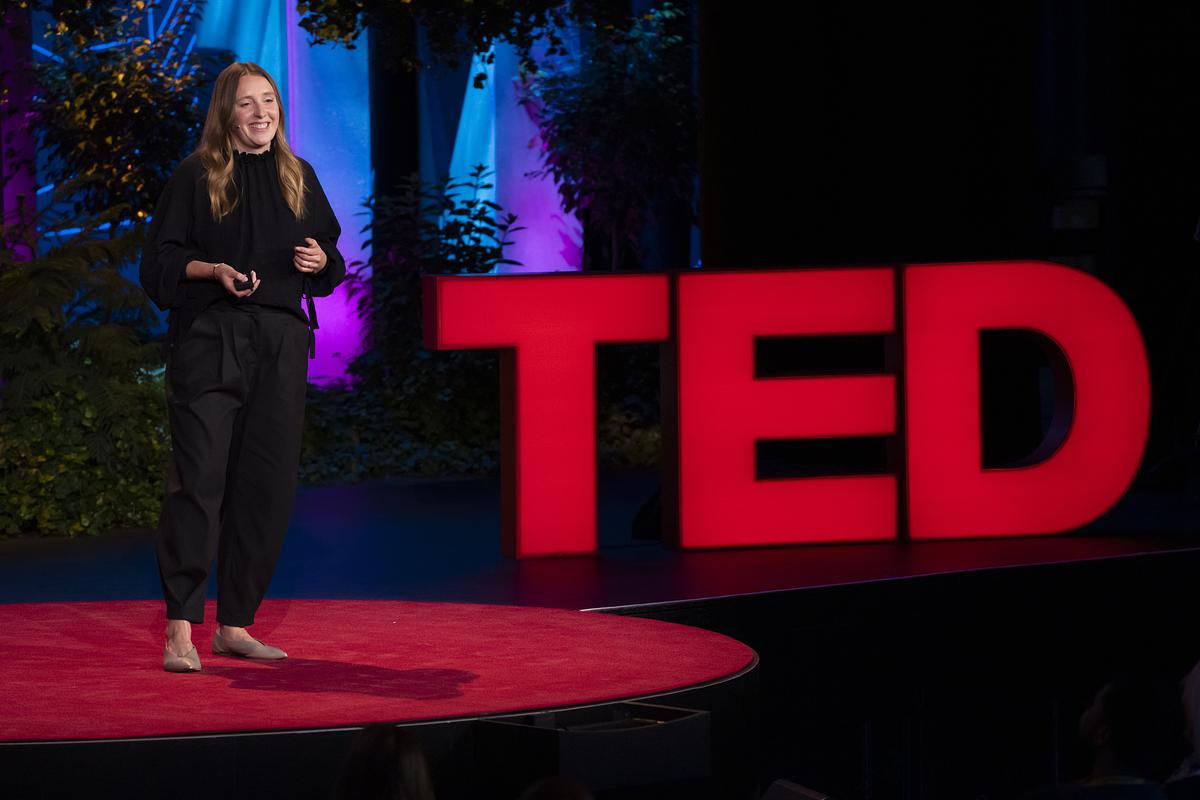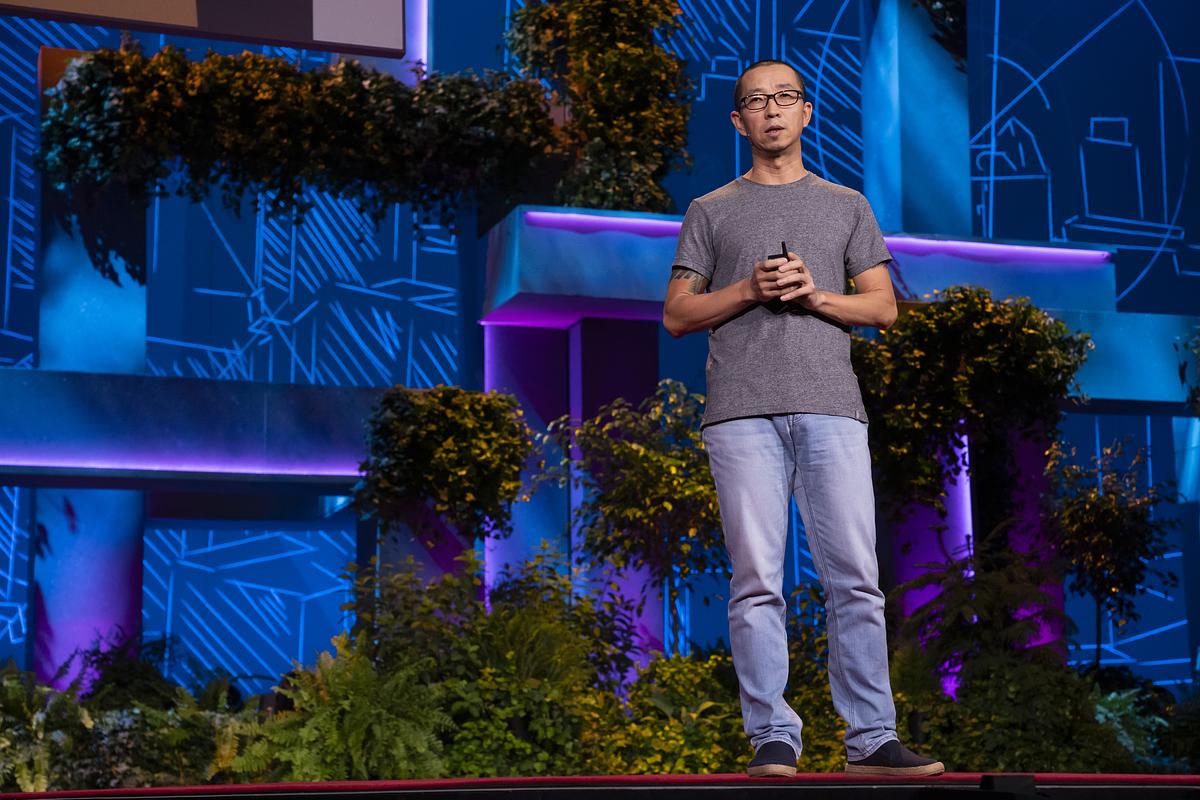https://blog.ted.com/dilemmas-notes-from-session-3-of-ted-countdown-summit-2023/
- |
Session 3 of TED Countdown Summit 2023 tackled some of the knottier issues related to climate change — from the massive amount of money needed to finance the global green transition, to the struggle for energy access in developing nations and the ecosystem effects of fast fashion — and offered glimpses of the world-changing solutions already underway to lead us into a clean, prosperous future for all.
The event: Talks from Session 3 of TED Countdown Summit 2023, hosted by TED’s Lindsay Levin and David Biello
When and where: Wednesday, July 12, 2023, at the Fillmore Detroit in Detroit, Michigan
Speakers: Nili Gilbert, David Blood, Avinash Persaud, Tombo Banda, Steve Presley, Amy Powney, Payton M. Wilkins, Xiaojun “Tom” Wang

Sustainable investing leader David Blood and investment decarbonization expert Nili Gilbert speak at Session 3 of TED Countdown Summit on July 12, 2023, at the Fillmore Detroit in Detroit, Michigan. (Photo: Jasmina Tomic / TED)
How much money is required to decarbonize the world? Sustainable investment experts Nili Gilbert and David Blood provide both macro and on-the-ground perspectives on the kinds of finance flowing to climate solutions. While some progress has been made, hard-to-abate sectors and the Global South are still being left out of solutions. The good news? There’s certainly enough capital; there are no legal barriers to allocating capital to sustainable solutions; there are amazing entrepreneurs and business people doing the work; and public policy is on the move (like the Inflation Reduction Act in the US). The key is to get money moving to the right places and, as Gilbert says, to see this moment for what it is: a massive, multigenerational opportunity for sustainable growth — greater in scale than the Industrial Revolution and on pace to transform the world in less than 30 years.

Economist and professor Avinash Persaud speak at Session 3 of TED Countdown Summit on July 12, 2023, at the Fillmore Detroit in Detroit, Michigan. (Photo: Gilberto Tadday / TED)
After Hurricane Maria decimated Dominica in 2017, the country declared its intention to become the first climate-resilient nation in the world. But as they sought to organize their response to future climate disasters, economist Avinash Persaud says, they quickly realized that the only real solution was to halt climate change entirely. For the developing world, the path to a greener, more sustainable future looks different than for wealthier countries. Developing nations can’t ban emissions, tax carbon or shift to renewables without hurting their growing economies and leaving large portions of their workforce unemployed. Persaud introduces the Bridgetown Initiative, a proposal to finance the green transformation of global systems, as a solution. Beginning with reducing barriers to private investment in green technologies in developing nations, the initiative also calls for more generous lending policies for resilience investments and a revenue stream created by taxing emissions from the shipping industry.

Energy access innovator Tombo Banda speak at Session 3 of TED Countdown Summit on July 12, 2023, at the Fillmore Detroit in Detroit, Michigan. (Photo: Jasmina Tomic / TED)
When electricity arrived in Zomba, Malawi in 1994, energy access innovator Tombo Banda says it brought her village significant changes to the health, comfort and happiness of its residents. But the reality is that 500 million people still lack access to electricity in Sub-Saharan Africa, relying on highly polluting materials like diesel and firewood. How do we get more people access to clean electrification quickly? Enter mini-grids, or localized renewable energy systems. By making the mini-grid business model more profitable, these systems can become more scalable — and enticing for private investors. Innovative approaches like using less expensive batteries and appliance financing to increase revenues can also accelerate electrification, Banda says, ultimately making electricity more accessible — and creating better lives for millions of people.

Nestlé North America CEO Steve Presley speaks at Session 3 of TED Countdown Summit on July 12, 2023, at the Fillmore Detroit in Detroit, Michigan. (Photo: Jasmina Tomic / TED)
In conversation with TED’s Lindsay Levin, Nestlé North America CEO Steve Presley discusses how one of the world’s largest food companies aims to reach net zero by 2050. Their efforts include sourcing ingredients from regenerative farming, improving packaging to contain less plastic, powering manufacturing with renewable energy and offering financial incentives to local farmers who use sustainable practices. Presley shares where Nestlé has made progress and where it’s still investing for change, encouraging transformation at every step of the food production process.

Fashion designer Amy Powney speaks at Session 3 of TED Countdown Summit on July 12, 2023, at the Fillmore Detroit in Detroit, Michigan. (Photo: Jasmina Tomic / TED)
Fashion designer Amy Powney designs for sustainability first, ensuring all aspects of the clothing made by Mother of Pearl, where she is creative director, are environmentally friendly and ethically produced. That ethos stands in contrast to the fast fashion garments that are often produced by underpaid workers with materials sourced from fossil fuels, endangered forests or plastics. She delves into the problems surrounding our pursuit of cheap clothing, from health and pollution to landfills that are visible from space, calling for everyone to reconsider the value of each item of clothing they own, its connection to the Earth and the lives touched by its creation.

Environmental justice advocate Payton M. Wilkins speaks at Session 3 of TED Countdown Summit on July 12, 2023, at the Fillmore Detroit in Detroit, Michigan. (Photo: Gilberto Tadday / TED)
Shutting down the fossil fuel industry means cleaner air and healthier citizens in the long term. But in the short term, it also means fewer jobs and shrinking livelihoods. While green jobs could, in time, supply a needed paycheck, the immediate impacts of closing a mine or refinery are devastating. We can protect both workers and the environment with an age-old solution: unions. As union leader and environmental justice advocate Payton Wilkins tells it, the multi-generational, multi-ethnic and multi-gender trade union movement could become a formidable force in the fight against climate change — and in places like Denmark, where unions spearhead the ascendance of clean energy, they already are. By showing workers that environmental justice and workplace equity are not mutually exclusive, Wilkins hopes to lead US unions to the front lines of the fight against climate change.

Hiker, biker and storyteller Xiaojun “Tom” Wang speaks at Session 3 of TED Countdown Summit on July 12, 2023, at the Fillmore Detroit in Detroit, Michigan. (Photo: Jasmina Tomic / TED)
Xiaojun “Tom” Wang grew up in the Chinese province of Shanxi, the world’s largest coal producer. Each year, more than a billion tons of coal are dug out from underneath Shanxi’s mountains, helping heat and power at least 24 other provinces in China. Wang narrates the devastating impacts of coal mining — accidents in coal mines, massive landslides, damage to cultural sites — and calls for Beijing to ease the pressure on Shanxi’s coal industry. Shanxi needs support in breaking free from its coal addiction, he says, not only to transition to a clean economy, but also to protect its rich cultural heritage.

Attendees applaud at Session 3 of TED Countdown Summit on July 12, 2023, at the Fillmore Detroit in Detroit, Michigan. (Photo: Nick Hagen / TED)
